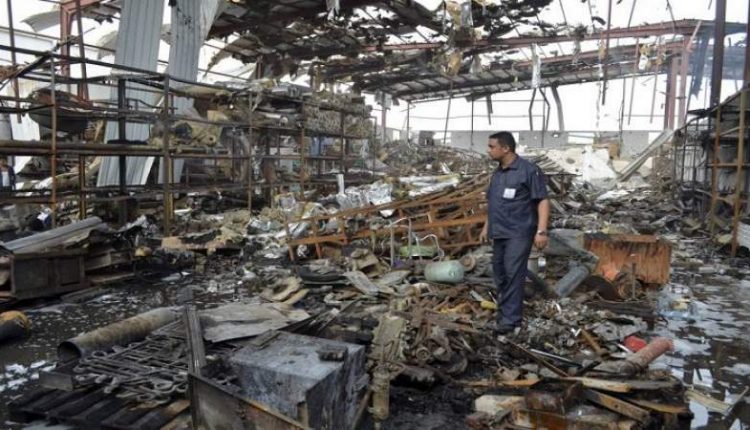Losses of Investment, Semi-permanent Paralysis During Six Years of US-Saudi Aggression, Blockade
The US-Saudi aggression and blockade imposed on Yemen stormed the investment environment, creating an unattractive climate for both material and human capital. This led to the escape of a large part of it..
Investment faced harsh conditions during six years of targeting, by the aggression and blockade, directly or indirectly. The registration of new investment projects decreased to less than half, and the invested capital also declined below that, and many job opportunities were lost. Losses continue to add up, according to the deputy.
“Aggression and siege offer investment to direct losses represented in the price of the commodity, the assets and the lost market share, and indirectly related to the challenges created by the blockade, such as energy, insurance, currency and inflation constraints,” said the Deputy Chief of the General Investment Khaled Sharaf al-Din.
“The list of repercussions is many,” Adel Al-Ashtal Director General of the Investor Department at the General Investment began his speech with this sentence. Al-Ashtal pointed out that “the blockade imposed on production inputs and fuel, with its costs and additional burdens on investors and the general population is more dangerous than the aggression air raids that are directly targeted at investment projects.”
Director General of Strategic Projects at the General Investment Authority, Hani Al-Shatfa, points out that the aggression and siege caused “the disruption of various investment projects and activities that were under completion in Aden, Hodeidah, Sana’a and other governorates.”
The Director General of Strategic Projects stops at another impact that resulted from the aggression and the siege on Yemen, which is the loss of the tremendous and promising investment opportunities in Yemen that could have been implemented in a suitable work and investment environment, whether by local or non-local investors. “There is no doubt that the aggression and blockade prevented any foreign capital from flowing to investment in Yemen during the past years,” he added.
The repercussions and losses did not stop directly or partially destroying investment projects or disrupting their activities under the various restrictions of the blockade and the high costs of production. Rather, the workforce is affected within the various investment structures. “The disruption of aggression and the blockade of investment in the contracting and public works sector caused the loss of nearly one million job opportunities, as well as hundreds of thousands of job opportunities in the service, tourism and other sectors,” according to the Deputy Chief of the General Investment.

